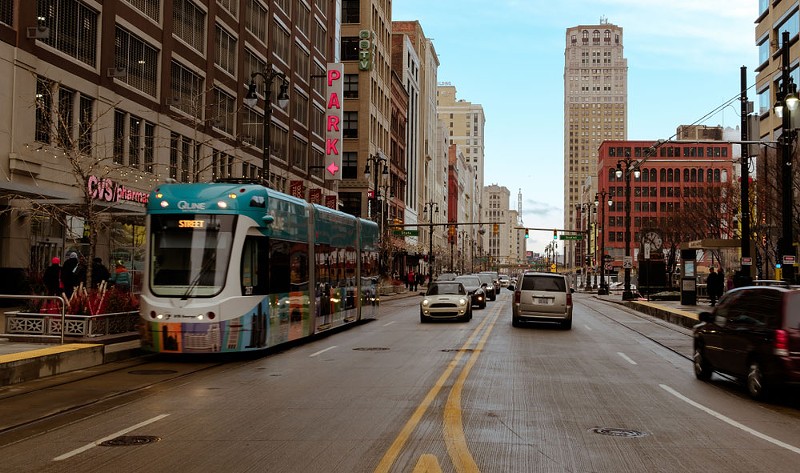Study: High auto insurance rates lock Detroiters into 'cycle of poverty'
The “cycle of poverty” in Detroit won’t end until car insurance rates become more affordable, a University of Michigan study concludes.
Detroit, the nation’s most impoverished big city, has the highest auto insurance rates in the nation.
The average annual premium is $5,414, compared to $1,427 nationally. As a result, Detroiters on average spend 18 percent of their income on auto insurance. In some Detroit ZIP codes, auto insurance soaks up 36 percent of drivers’ income.
Anything beyond 2 percent is “unaffordable,” according to the U.S. Treasury Department’s Federal Insurance Officers.
It’s no wonder, then, that an estimated 60 percent of Detroiters drive without insurance. That’s compared to 13 percent nationally. About a third of Motor City residents don’t even own a car.
The University of Michigan study blames the high rates on a number of factors, most of which can be resolved with legislation on the state and federal level.
Auto insurance companies use drivers’ credit scores in calculating rates. Drivers with poor credit scores pay more than twice for their insurance than someone with an excellent score.
“This is a big problem for Detroit residents, who collectively have some of the lowest credit scores in the country,” the report states. “Thus, a single mother in Detroit with a perfect driving record but bad credit could be charged one of the highest auto insurance premiums of any person in the entire country.”
U.S. Rep. Rashida Tlaib, D-Detroit, introduced legislation earlier this month that would ban insurance companies from using credit scores to determine rates.
Another big factor is the “state’s unique form of no-fault insurance, with unlimited Personal Injury Protection (PIP).” Michigan is the only state that requires unlimited PIP coverage.
“This means that in the even of an accident, automobile insurers are on the hook for unlimited medical damages, which drives up the cost of insurance for everybody,” the study states.
Auto insurance in Michigan also has no medical fee schedules that outline how much hospitals can charge insurance companies.
“This leads no-fault insurers in Michigan to be charged significantly more than Medicare, Workers Comp, or private insurers for the exact same medical procedures,” the study reads.
In 2013, the average cost of an auto accident claim in Michigan was more than $75,000 – a five-fold increase over the state with the next highest average. That makes auto accidents a magnet for personal injury attorneys.
“As one might expect, with unlimited protection and no regulations on medical fees, the system is a prime target for personal injury attorneys, with PIP-related first-party lawsuits now making up two thirds of all lawsuits in the state,” the study states. “Large settlements resulting from these suits contribute to Michigan’s high auto insurance rates.”
Mayor Mike Duggan has worked closely with state lawmakers to reduce auto insurance rates, but the legislation was defeated 63-45 in 2017. All of the Democrats in the House, except for four of the nine representatives from Detroit, rejected bill.
While the legislation sought to reduce rates by capping total medical care benefits, it failed to address non-driving factors that discriminate against Detroiters, such as credit score and zip code.
Democrats accused Duggan of protecting auto insurance companies at the expense of drivers. The mayor has collected tens of thousands of dollars in campaign donations from people and groups connected to the auto-insurance industry.
Now Duggan is fighting Michigan’s no-fault insurance in federal court. The city claims in a lawsuit that the state’s 1973 no-fault law is unconstitutional because it fails to ensure insurance rates are “fair and equitable.” If the city wins the suit, Duggan wants the court to order the state to amend the law so that rates decline.
The University of Michigan study concluded that real reform requires both reducing rates and narrowing “the gap between what Michigan’s wealthiest and poorest residents pay for auto insurance.”
“Only in doing so can Michigan end a cycle of poverty that puts Michiganders and our state, as a whole, at a competitive disadvantage,” the study concluded.
Stay on top of Detroit news and views. Sign up for our weekly issue newsletter delivered each Wednesday.


